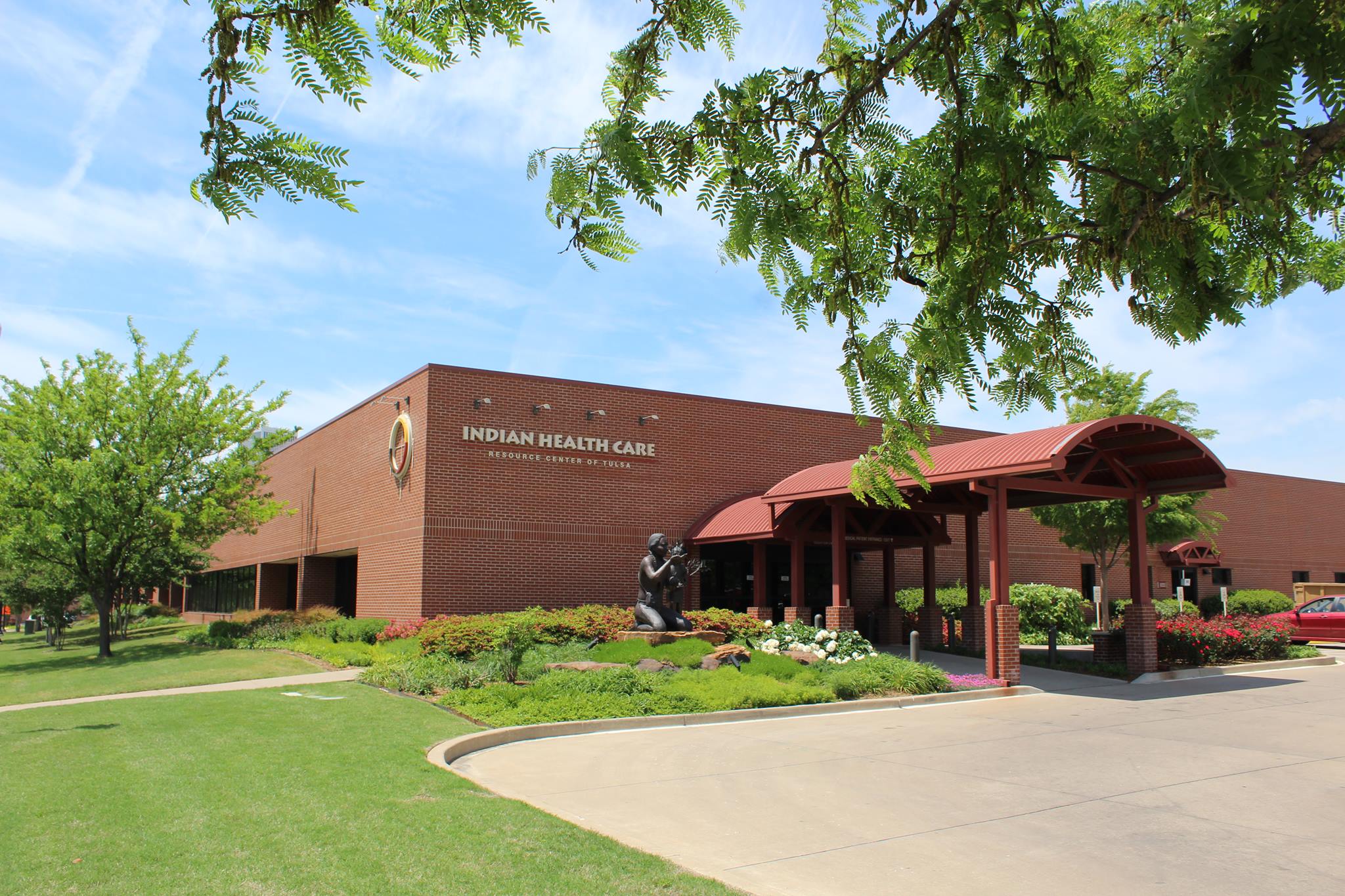Indian Health Tulsa plays a pivotal role in delivering quality healthcare services to Native American communities in Oklahoma. With a mission to address health disparities and provide culturally sensitive care, Indian Health Tulsa has become a cornerstone of health and wellness for the region's indigenous populations. This article delves into the various aspects of Indian Health Tulsa, from its history and services to its impact on the community and future developments. Whether you're a community member, healthcare professional, or someone interested in Native American health, this guide offers valuable insights into the resources available in Tulsa.
Access to healthcare is a fundamental right, yet many Native American communities face significant barriers. Indian Health Tulsa addresses these challenges by offering tailored medical services, wellness programs, and support systems. This guide will explore how Indian Health Tulsa has evolved over the years, the services it provides, and its role in improving health outcomes for Native Americans. By understanding the significance of Indian Health Tulsa, we can appreciate its contributions to both individual well-being and community health.
As a YMYL (Your Money or Your Life) topic, healthcare is a subject that directly impacts people's lives. Indian Health Tulsa is committed to upholding the principles of E-E-A-T (Expertise, Authoritativeness, Trustworthiness) to ensure that the information and services provided are reliable and beneficial. Throughout this article, we will highlight the organization's expertise, authoritative standing, and commitment to trustworthiness, ensuring that readers receive accurate and actionable information. Let’s dive into the details of Indian Health Tulsa and discover how it serves as a beacon of hope for Native American health in Tulsa.
Read also:Carls Death In The Walking Dead A Deep Dive Into The Emotional Impact And Legacy
Table of Contents
- Biography of Indian Health Tulsa
- History and Evolution
- Key Services Offered
- Community Wellness Programs
- Challenges and Solutions
- Impact on Native American Health
- Partnerships and Collaborations
- Future Developments
- Additional Resources
- Conclusion and Call to Action
Biography of Indian Health Tulsa
Indian Health Tulsa is an integral part of the Indian Health Service (IHS), a federal health program designed to provide healthcare services to Native American communities. Established to address the unique healthcare needs of indigenous populations, Indian Health Tulsa has grown into a comprehensive healthcare provider in Oklahoma. Below is a brief overview of the organization’s key details:
| Attribute | Details |
|---|---|
| Founded | 1955 |
| Location | Tulsa, Oklahoma |
| Mission | To raise the physical, mental, social, and spiritual health of Native Americans |
| Services | Primary care, dental care, behavioral health, preventive services, and more |
| Community Served | Native American tribes in Tulsa and surrounding areas |
History and Evolution
Indian Health Tulsa traces its roots back to the establishment of the Indian Health Service in 1955. Initially created to consolidate healthcare services for Native Americans, the organization has evolved significantly over the decades. The Tulsa branch was established to address the healthcare needs of the growing Native American population in Oklahoma. Over the years, Indian Health Tulsa has expanded its facilities, services, and outreach programs to better serve its community.
Key Milestones
- 1955: Indian Health Service is established by the U.S. government.
- 1970s: Expansion of healthcare facilities in Tulsa to accommodate growing demand.
- 1990s: Introduction of community wellness programs focusing on preventive care.
- 2010s: Adoption of modern healthcare technologies and telemedicine services.
Key Services Offered
Indian Health Tulsa provides a wide range of healthcare services tailored to the needs of Native American communities. These services are designed to address both physical and mental health, ensuring holistic care for patients.
Primary Care
Primary care is the foundation of Indian Health Tulsa's services. Patients can access routine check-ups, vaccinations, and chronic disease management. The organization emphasizes preventive care to reduce the incidence of common health issues among Native Americans, such as diabetes and heart disease.
Dental Care
Dental health is a critical component of overall well-being. Indian Health Tulsa offers comprehensive dental services, including cleanings, fillings, and oral surgeries. The organization also runs educational programs to promote oral hygiene and prevent dental diseases.
Behavioral Health
Recognizing the importance of mental health, Indian Health Tulsa provides counseling and therapy services. These programs address issues such as depression, anxiety, and substance abuse, offering culturally sensitive support to patients.
Read also:Catriona Grays Boyfriend Now Everything You Need To Know
Community Wellness Programs
Indian Health Tulsa is committed to promoting wellness and preventing diseases through community-based programs. These initiatives are designed to empower individuals and families to take charge of their health.
Diabetes Prevention Program
Diabetes is a prevalent health issue among Native American populations. Indian Health Tulsa offers a diabetes prevention program that includes nutritional counseling, exercise classes, and support groups. This initiative has significantly reduced the risk of diabetes among participants.
Maternal and Child Health
The organization provides specialized care for pregnant women and young children. Services include prenatal check-ups, breastfeeding support, and pediatric care. These programs aim to ensure healthy pregnancies and the well-being of the next generation.
Challenges and Solutions
Despite its achievements, Indian Health Tulsa faces several challenges in delivering healthcare services. These include funding limitations, geographic barriers, and cultural misunderstandings. However, the organization has implemented innovative solutions to overcome these obstacles.
Funding Limitations
Funding is a persistent challenge for Indian Health Tulsa. To address this, the organization actively seeks grants and partnerships with non-profit organizations. These efforts have helped expand services and improve facilities.
Geographic Barriers
Many Native American communities in Tulsa are located in rural areas, making access to healthcare difficult. Indian Health Tulsa has introduced mobile clinics and telemedicine services to reach underserved populations.
Impact on Native American Health
Indian Health Tulsa has made a significant impact on the health and well-being of Native American communities in Tulsa. Through its comprehensive services and community programs, the organization has improved health outcomes and reduced disparities.
Health Outcomes
Studies show that communities served by Indian Health Tulsa have experienced a decline in chronic disease rates and improved access to preventive care. These outcomes underscore the organization's effectiveness in addressing health challenges.
Community Empowerment
By involving community members in program development and decision-making, Indian Health Tulsa has empowered individuals to take an active role in their health. This participatory approach has strengthened trust and collaboration between the organization and the community.
Partnerships and Collaborations
Indian Health Tulsa collaborates with various organizations to enhance its services and reach. These partnerships include local hospitals, universities, and non-profit groups.
Collaboration with Universities
Indian Health Tulsa partners with universities to conduct research and train healthcare professionals. These collaborations have led to advancements in healthcare delivery and improved patient outcomes.
Non-Profit Partnerships
By working with non-profit organizations, Indian Health Tulsa has secured additional funding and resources. These partnerships have enabled the organization to expand its programs and services.
Future Developments
Indian Health Tulsa is committed to continuous improvement and innovation. The organization is exploring new technologies and strategies to enhance healthcare delivery and address emerging challenges.
Telemedicine Expansion
Telemedicine has proven to be an effective tool for reaching underserved populations. Indian Health Tulsa plans to expand its telemedicine services to provide more accessible and convenient care.
Focus on Mental Health
Recognizing the growing need for mental health services, Indian Health Tulsa is investing in additional resources and programs to support patients' mental well-being.
Additional Resources
For those seeking more information about Indian Health Tulsa and Native American healthcare, the following resources are available:
Conclusion and Call to Action
Indian Health Tulsa is a vital institution that provides essential healthcare services to Native American communities in Tulsa. Through its comprehensive programs, innovative solutions, and community-focused approach, the organization has made a significant impact on the health and well-being of its patients. By addressing challenges and embracing future developments, Indian Health Tulsa continues to set a standard for culturally sensitive and effective healthcare.
We encourage readers to learn more about Indian Health Tulsa and support its mission. Whether you're a community member, healthcare professional, or advocate, your involvement can make a difference. Share this article, leave a comment, or explore additional resources to deepen your understanding of Native American healthcare. Together, we can work towards a healthier future for all.

